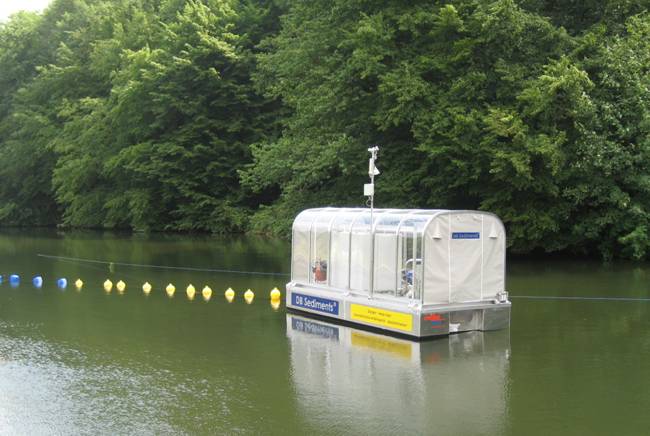Difference between revisions of "Improve continuity of sediment transport"
(→Case studies where this measure has been applied) |
(→Improve continuity of sediment transport) |
||
| Line 1: | Line 1: | ||
=Improve continuity of sediment transport= | =Improve continuity of sediment transport= | ||
| + | Category 02. Sediment flow quantity improvement | ||
| − | |||
==General description == | ==General description == | ||
Revision as of 14:16, 24 June 2015
Contents
- 1 Improve continuity of sediment transport
- 1.1 General description
- 1.2 Applicability
- 1.3 Expected effect of measure on (including literature citations):
- 1.4 Temporal and spatial response
- 1.5 Pressures that can be addressed by this measure
- 1.6 Cost-efficiency
- 1.7 Case studies where this measure has been applied
- 1.8 Useful references
- 1.9 Other relevant information
Improve continuity of sediment transport
Category 02. Sediment flow quantity improvement
General description
Applicability
Expected effect of measure on (including literature citations):
- HYMO (general and specified per HYMO element)
- physico � chemical parameters
- Biota (general and specified per Biological quality elements)
Temporal and spatial response
Pressures that can be addressed by this measure
- Reservoir flushing
- Sediment discharge from dredging
- Colinear connected reservoir
- Sand and gravel extraction
- Artificial barriers upstream from the site
- Artificial barriers downstream from the site
- Impoundment
- Sedimentation and sediment input
Cost-efficiency
Case studies where this measure has been applied
Continuous Sediment transfer is successfully being applied e.g. at Olsberg Reservoir of operator RWE since 2011. An automated vessel provides year round sediment transfer, except during ice coverage. Over time the vessel strikes the complete reservoir ground to transfer incoming sediment which deposited on the reservoirs floor. The sucked sediment is pumped to the aligned hydro power plant where the sediment is dropped in front of the turbine inlet and transferred through the turbine to the downstream river. The turbine ensures a good mixing with the outflow. Turbine components are not affected at the given sediment ratio.
A scaling instrument aboard the vessel allows for automatically adjusting a sediment transfer volume which suits to the actual plant/reservoir outflow and downstream compatibility. Transfer capacity at this application is up to 20 t/day, depending on the reservoirs outflow. The downstream river as well as the reservoir itself experienced a significant increase in ecological condition assessment within only weeks.
 Automated Sediment Transfer Vessel (photo courtesy of DB Sediments).
Automated Sediment Transfer Vessel (photo courtesy of DB Sediments).